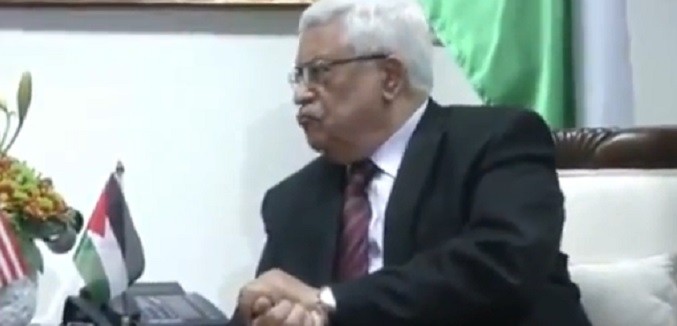A series of recent reports and developments have refocused attention on links between weak Palestinian institutions and endemic Palestinian corruption, underlining decades-old worries that internal structural barriers that may hamper the creation of a viable Palestinian state.
Analysts have long called attention to at least four fundamental dynamics that risk rendering any Palestinian state a failed state: a lack of political legitimacy for Palestinian governments, a lack of economic sustainability in either the West Bank or the Gaza Strip, the existence of rival governments in territories claimed by the Palestinians for a state, and the inability of Palestinian governments to check armed groups unconnected to those governments.
The Jerusalem Post reported over the weekend that pressure is mounting on Palestinian Authority (PA) President Mahmoud Abbas to appoint a deputy president:
Several Fatah leaders have recently called on the 78-yearold Abbas to name a deputy, arguing that such a move was necessary to avoid a power vacuum if and when he steps down.
Abbas recently agreed to the formation of a committee of top Fatah officials to discuss the appointment of a deputy president, said Mahmoud al-Aloul, member of the Fatah Central Committee.
Abbas is more than halfway through the ninth year of his four-year term as president, and mounting accusations of corruption throughout 2013 – to say nothing of long-held suspicions of deep-seated corruption – have sapped the PA’s political legitimacy.
Shin Bet head Yoram Cohen last week blasted the PA:
As for the motivation behind the attacks, Cohen noted the dire economic conditions Palestinians are living under in the West Bank, adding the attacks were not deliberate, organized attempts to damage the peace talks between Israel and the Palestinians, which started in July.
He added that there’s “no financial horizon” in the West Bank and referred to the Palestinian Authority as a “corrupt” body.
In his annual review, the security chief said that there have been about 1,700 militant incidents including shooting, hurling Molotov cocktails and stones.
Last October the European Court of Auditors reported that roughly billions of euros of European assistance provided to the PA between 2008 and 2012 had been “misspent, squandered or lost to corruption.” Auditors specifically cited “high-level risks, such as corruption or funds not used for their intended purpose.”
For its part The New York Times on Monday published an expose on what the outlet described as the “personal conflict” of Palestinians who work in Israeli-owned businesses in the West Bank where – because those businesses are subject to Israeli rather than Palestinian laws – they receive benefits and compensation orders of magnitude over what they would otherwise earn. The story cited multiple “Palestinian officials and boycott advocates” who blamed Israeli for “the moribund Palestinian economy.” It is not clear to what degree the reporting aligns with recent analysis and developments.
[Photo: turknewss / YouTube ]




